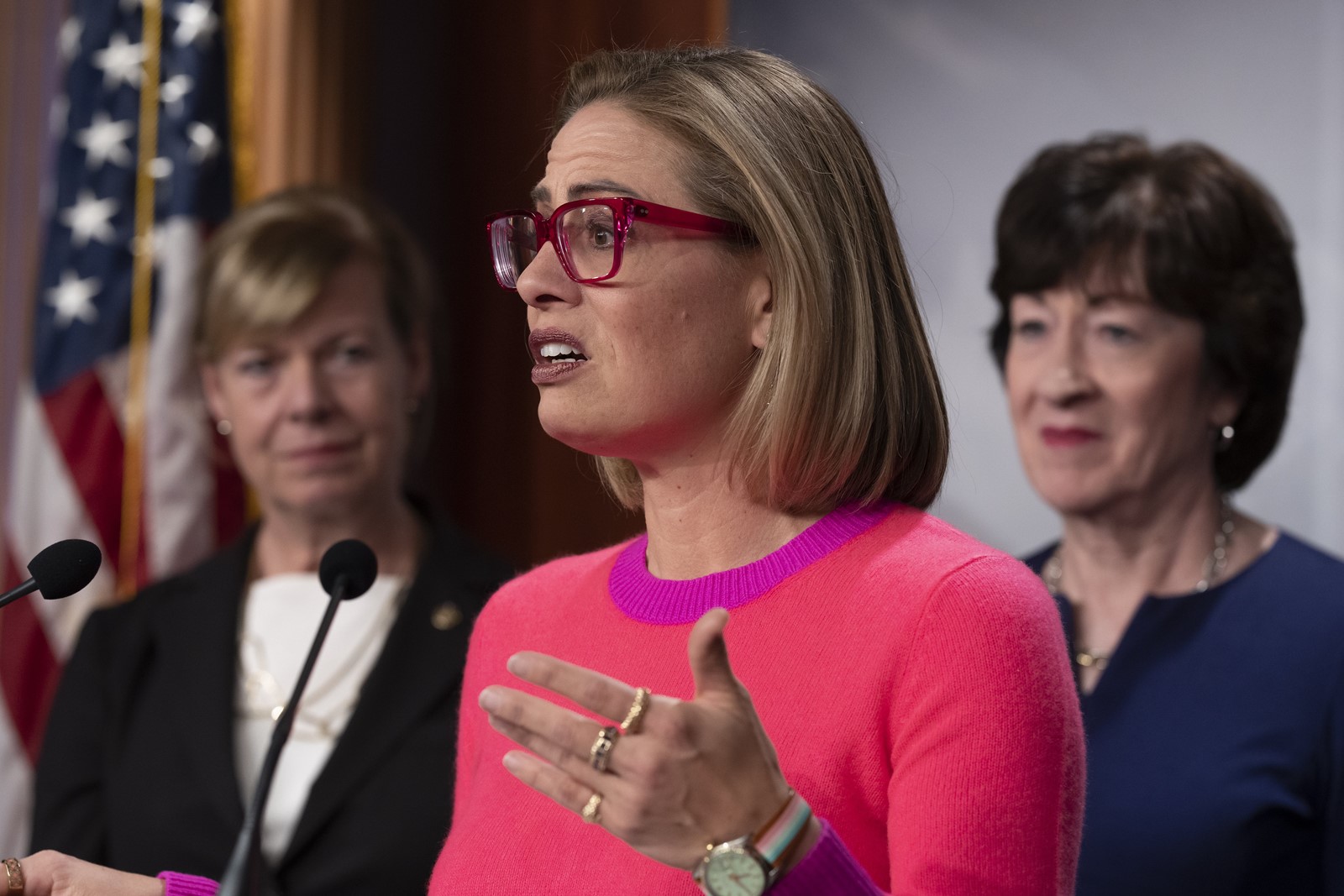
WASHINGTON — Democratic Sen. Kyrsten Sinema of Arizona announced Friday she has registered as an independent, a renegade move that could bolster her political brand but won’t upend the Democrats’ narrow Senate majority. She says she will not caucus with Republicans.
Sinema, who faces reelection in 2024, has been a vibrant yet often unpredictable force in the Senate, tending toward the state’s independent streak and frustrating Democratic colleagues at times with her overtures to Republicans and opposition to Democratic priorities.
Rather than assailing the Democratic Party in her statement Friday, she said she was “declaring my independence from the broken partisan system in Washington.”
While unusual for a sitting senator to switch party affiliation, Sinema’s decision may have more impact on her own political livelihood than the operations of the Senate.
She plans to continue her committee positions through the Democrats.
Her move comes just days after Democrats had expanded their majority to 51-49 for the new year, following the party’s runoff election victory in Georgia.
In a statement, Senate Majority Leader Chuck Schumer said Sinema had informed him of her decision and asked to keep her committee assignments — effectively keeping her in the Democratic fold.
“Kyrsten is independent; that’s how she’s always been,” said Schumer, D-N.Y. “I believe she’s a good and effective senator and am looking forward to a productive session in the new Democratic majority Senate.”
The Democrats “will maintain our new majority on committees, exercise our subpoena power and be able to clear nominees without discharge votes,” he said.
In case of tie votes, Vice President Kamala Harris will continue to provide the winning vote for the Democrats.
Sinema, who has modeled her political approach on the maverick style of the late GOP Sen. John McCain of Arizona, will join a small but influential group of independent senators aligned with the Democrats — Angus King of Maine and Bernie Sanders of Vermont.
In a video explaining her decision, she said: “Registering as an independent and showing up to work with the title of independent is a reflection of who I’ve always been. ... Nothing’s going to change for me.’’
White House press secretary Karine Jean-Pierre praised Sinema as a “key partner” in passing some of President Joe Biden’s priorities and said the switch “does not change the new Democratic majority control of the Senate. ... We have every reason to expect that we will continue to work successfully with her.”
Sinema has not said whether she will seek reelection in 2024, but her move scrambles the landscape as Democrats already face a tough path to maintaining Senate control.
Her switch risks splitting the Democratic vote in Arizona between Sinema and the eventual Democratic nominee, giving Republicans a solid opening.
A splintered ballot could help Republican recruiting efforts as they seek to perform better than their losses in the recent midterm elections.
A weak GOP field contributed to Democratic Sen. Mark Kelly’s reelection in Arizona last month.
A political action committee, Primary Sinema, that is raising money to support a potential challenger, said the money it has already raised will now be used to back “a real Democrat” in 2024.
Abandoning the Democratic Party is a striking evolution for a politician who began her career as a Green Party member and anti-war activist known as a “Prada socialist.”
The shift has been particularly vexing for progressive activists who now see her as one of their chief antagonists.
The first-term Sinema wrote in The Arizona Republic that she came into office pledging “to be independent and work with anyone to achieve lasting results. I committed I would not demonize people I disagreed with, engage in name-calling, or get distracted by political drama. I promised I would never bend to party pressure.”
She wrote that her approach is “has upset partisans in both parties” but “has delivered lasting results for Arizona.” Sinema also said that she has “never fit perfectly in either national party.”
She told Politico that she plans to keep voting as she has since winning election to the Senate in 2018 after three House terms.
Ahead of the 2024 elections, Sinema is likely to be matched against a well-funded primary challenger after angering much of the Democratic base by blocking or watering down progressive priorities such as a minimum wage increase and Biden’s big social-spending initiatives.
Sinema’s most prominent potential primary challenger is Rep. Ruben Gallego, who has a long history of feuding with her.
Sinema is a staunch defender of the filibuster, a Senate rule effectively requiring 60 votes to pass most legislation in the 100-member Senate.
Many Democrats, including Biden, say the filibuster leads to gridlock by giving a minority of lawmakers the ability to veto.


 PREVIOUS ARTICLE
PREVIOUS ARTICLE
